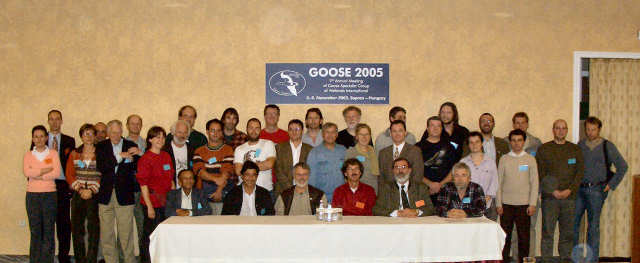Conference report
The latest and 9th Goose Specialist Group meeting was held from 5-9 November 2005 in Sopron, Hungary.
This meeting was attended by 40 participants from 14 different countries (Belgium, Bulgaria, Estonia, Finland, France, Germany, Hungary, India, Netherlands, Norway, Russia, Spain, Sweden, Ukraine).

The meeting was organized by Prof. Sándor Faragó of the University of Western Hungary.
The recent concern about the risk that migratory birds could carry avian flu viruses from Asia to Europe was a major issue during the conference. Vincent Munster from the Erasmus University Rotterdam (NL), who is studying the rate at which migratory geese that winter in the Netherlands are carrying viral diseases, came to report his findings, and strengthen contacts with the network of goose researchers. He underlined that low pathogenic viruses, which are known to be present in migratory birds, may be carried over to poultry by these wild birds. The major risk then is, that such low pathogenic viruses could subsequently mutate into potentially dangerous high pathogenic forms. The high densities in which poultry are kept, would serve as an ideal medium for such mutations. Maarten Loonen from the Arctic Centre Groningen (NL) reported on the risks that diseases pose on the wild bird populations themselves, and plans to work on this issue during the coming International Polar Year.
Generally it was felt that the present panic in many European countries that migratory birds are a major threat for humans is unnecessary. The meeting endorsed the wording chosen by the new task force on avian influenza convened by UNEP/CMS (Convention on the Conservation of Migratory Species of Wild Animals). That CMS-task force warned against growing hysteria and a “one-eyed” approach in the media which grossly over-simplifies the causes of the flu-outbreak, and the methods to counter-act it in the interests of human and animal health. Would more study on bird migration have been carried out in the past, uncertainty could have been taken away much earlier, and panic have been avoided. Increased knowledge about the migratory movements of wild geese and about the rate at which these geese are carrying viruses would certainly help to avoid such panic in the future.
Report by Bart Ebbinge (Alterra, Wageningen (NL), Chairman of the Goose Specialist Group.